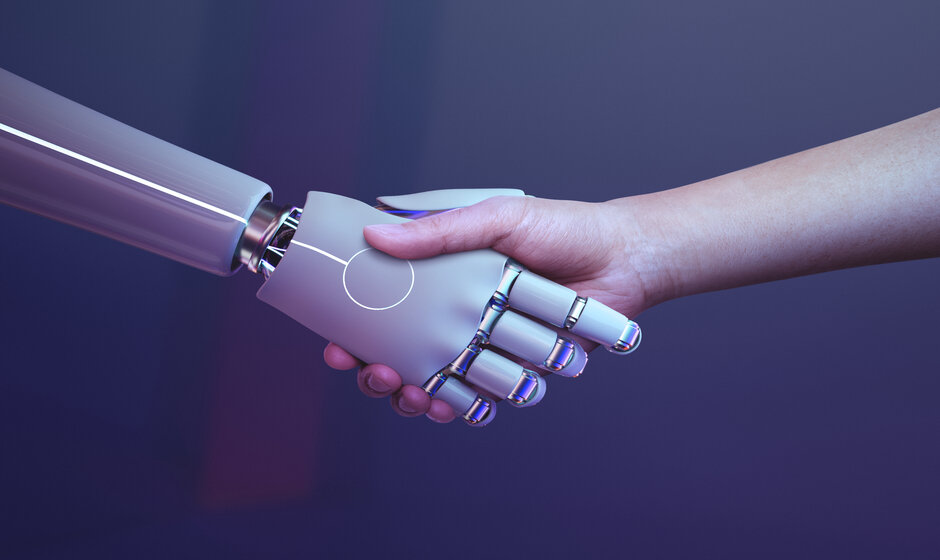However, although machine learning systems are becoming smarter and more human-like, there are still firm limits. In particular, the creation of original unique content is still the preserve of human authors. In some areas, however, computer systems can already replace them.
ARTIFICIAL INTELLIGENCE - WHAT IS IT ANYWAY?
Artificial intelligence, or AI for short, is a branch of computer science. In English, it is usually referred to as Artificial Intelligence, or AI for short. The goal of this discipline is to create rationally acting computer systems that are similar or even superior to humans. However, the supposedly intelligent performance of an AI usually relates only to a specific area. In this area, a self-learning algorithm is optimized with the help of large amounts of test data until it can finally perform the given task independently. This process is also known as machine learning and forms a subfield of AI.
KI FOR COMMUNICATION AND CONTENT CREATION
For a long time, human language was a major hurdle for intelligent computer systems. In the meantime, however, applications equipped with so-called deep-learning algorithms have proven time and again that AI has mastered this field astonishingly well. Google Translator or DeepL now deliver high-quality translations thanks to self-learning AI. At the same time, the use of chatbots in customer service is on the rise. Most computer systems can only process and fulfill a limited number of requests. But they are available around the clock and can provide users with information.
With the development of Natural Language Generation (NLG), intelligent computer systems have also taken a major step toward autonomous content generation. This technology is still in its infancy, but is already showing promising results. Based on templates of pre-written sentences and a narrative sequence, the system selects the right snippets of language for natural-looking communication with a user. By linking to a database, the necessary information can also be incorporated into the text. NLG is used to create weather reports, sports news or even product texts. The more structured the starting point of the data is, the better the automated text creation is possible.
In addition to the chatbots mentioned above, NLG is now also used to generate reports from pure numbers and to generate product descriptions in large online stores. However, pleasantly readable content with added value, as expected by users in the context of content marketing, is not yet within the capabilities of NLG. The programs are (still) suitable primarily for monotonous routine work.
KI FOR DATA ANALYSIS AND PERSONALIZATION OF CONTENT
In addition to content creation, AI plays an important role in the personalization of content based on the evaluation of user data. Intelligent, self-learning systems are not bound by rigid specifications as to which user they present which content with which parameters. Instead, they can use machine learning to develop their own algorithms and parameters to determine the best possible content for each situation. In doing so, they take into account far more factors than a human could ever do. At the same time, your customers' browsing and buying patterns are fed into the algorithms as real-time feedback, so that they are constantly improving.
Overall, AI-based software in content marketing combines the benefits of better individualized results with less effort. In the coming years, we can also expect increasingly better and more human-looking results.
This article is part of a whitepaper.
Interested? Below you can download "Trends in Content Management" as a free whitepaper:
Download





